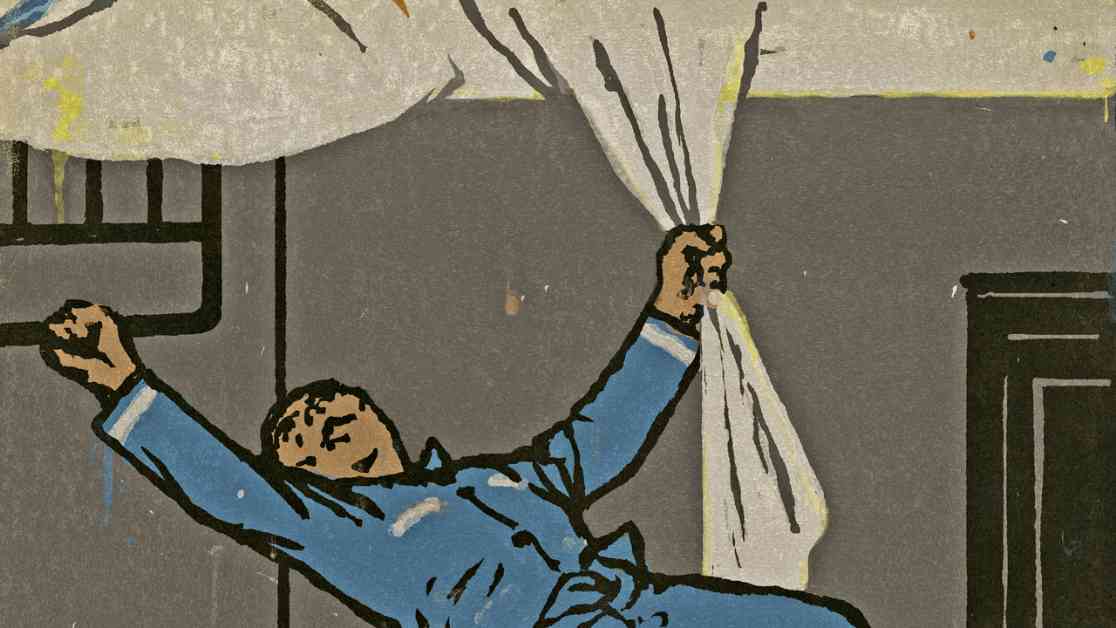Understanding the Insomniac Mind: Insights and Tips for Better Sleep
The perpetual struggle of insomniacs around the world to achieve a peaceful night’s rest is a complex, relatable human experience that transcends borders and cultures. The inability to switch off the mind and drift into the world of dreams can be as frustrating as it is exhausting. The nightly battle against sleeplessness, filled with tossing and turning, is a shared ordeal that often goes unnoticed but leaves deep emotional scars on those affected.
The Perplexities of Sleep: Existential Questions and Dream Realities
E. M. Cioran once pondered the colossal importance of insomnia, suggesting that humanity could be defined as the animal that cannot sleep. Sleep, which consumes a third of our lives when all goes well, presents existential paradoxes that challenge our understanding of consciousness and memory. While we are aware that we sleep, the act of sleeping itself remains elusive, shrouded in non-presence. Dreams, vivid and intense experiences that occur during sleep, blur the lines between reality and illusion, leaving us questioning the nature of our existence. The perennial philosopher’s query, “How do we know it’s not a dream?” lingers in the minds of insomniacs and good sleepers alike, blurring the boundaries between waking life and the realm of dreams.
Insights from Science: Unraveling the Mysteries of Unconsciousness
Delving into the realm of sleep science, experts like Matthew Walker shed light on the intricate architecture of unconsciousness. From the role of melatonin in regulating circadian rhythms to the impact of adenosine on our sleep drive, researchers strive to decode the mysteries of sleep. The consequences of sleep deprivation, from immune system suppression to increased cancer risk, underscore the critical importance of restorative sleep for overall health and well-being.
Coping with Insomnia: Embracing the Unpredictability of Sleeplessness
For many insomniacs, the nightly odyssey from bedroom to living room becomes a parody of sleep itself, marked by a restless search for rest. The struggle to find solace in the wakeful hours, oscillating between hope and despair, mirrors the complex nature of sleep and wakefulness. Coping mechanisms, from meditation to sleep hygiene practices, offer temporary relief but rarely provide a permanent solution to the sleepless nights that plague individuals.
The Art of Dreaming: Exploring the Depths of the Unconscious Mind
Our dreams, filled with symbolism and mystery, offer a window into the depths of the unconscious mind. Whether prophetic visions or fragmented narratives, dreams reflect our deepest fears, desires, and anxieties, shaping our perception of reality. Lucid dreaming, the practice of shaping dreams intentionally, allows individuals to explore new realms of creativity and self-discovery, blurring the boundaries between waking life and the world of dreams.
Embracing Consciousness: Finding Comfort in Wakefulness
Ultimately, the struggle against insomnia reveals the profound beauty of consciousness, the gift of awareness that sets humans apart from the slumbering universe. While sleeplessness may be a nightly betrayal of reason and humanity, it also serves as a testament to the insubordinate imagination and the enduring quest for knowledge and self-awareness. As insomniacs navigate the labyrinth of sleepless nights, they find solace in the moments of wakefulness that connect them to the essence of life itself, embracing the uniqueness of their conscious existence amidst the vast expanse of the sleeping world.












